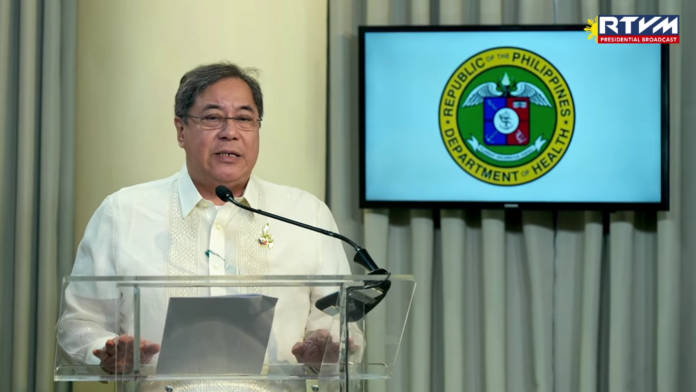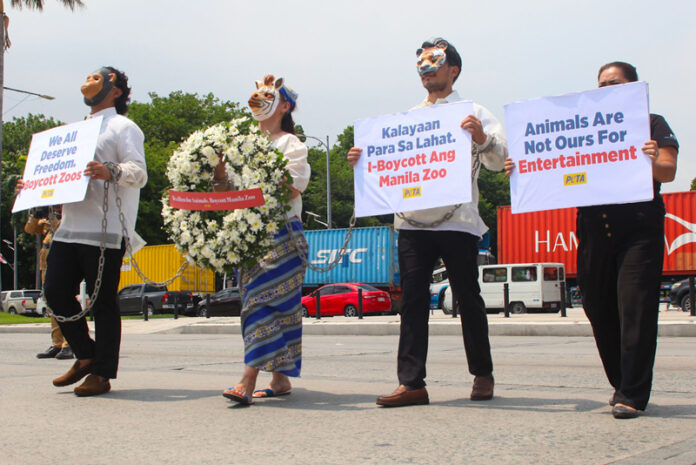PBBM to weigh impact of legislated wage increase
Senators are weighing the possibility of either adopting the House-approved proposal for a P200 legislated wage hike, which is double the P100 wage hike measure approved by the Upper Chamber, or arriving at a compromise at P150.
Senator JV Ejercito on Thursday said discussions remain ongoing, with a possible compromise figure of P150 being floated between the House and Senate proposals.
“At the very least, we can ensure there will be an increase. We would also like to hear opinions before we approve it, and we have to make sure that businesses can afford it and can survive,” Ejercito said.
President Ferdinand Marcos Jr. is closely studying the proposed measure, the Palace said, emphasizing that its economic impact must be thoroughly reviewed before a final decision is made.
“The President’s message is, and I quote, ‘We will look at the economic implications of these and how to resolve these with the opinion of the wage boards, since the wage boards are also creations of Congress,'” Presidential Communications Office Usec. Claire Castro said.
“It will still be studied. The Senate has yet to finish deliberating on the matter,” she added.
In his Labor Day message last month, the President said: “It is always nice to listen to sweet promises of higher wages, but these have an effect on the growth of businesses, jobs, and the economy. So, we should study this very carefully.”
Senator Joel Villanueva, chairman of the Senate Committee on Labor, Employment and Human Resources Development said the Upper Chamber’s version pegging the wage hike at P100 is “the most convenient and practical.”
“The P200, as much as we wanted to (pass it), we don’t know…If Malacañang says it’s okay for us to do it, since they have also studied it and have more resources to assess these measures, then why not?” Villanueva said.
The Makati Business Club (MBC) and the Philippine Chamber of Commerce and Industry (PCCI) have expressed serious concern over a possible legislated nationwide wage increase, warning it may fuel inflation, undermine regional wage-setting mechanisms, and place additional strain on small businesses.
In Metro Manila, the proposed wage hike represents a 31 percent increase from the current daily minimum wage of P645. In Calabarzon, where wages range from P450 to P540, the proposed hike ranges from 37 percent to 44 percent.
“The Makati Business Club believes that our focus should be to bring prices of basic goods down, especially food. If we don’t address the prices of basic goods, there will be continuing pressure to keep increasing wages, which is not only inflationary, but also makes us less competitive and productive versus other ASEAN countries,” the group said.
This, the group said, could reduce the country’s attractiveness to investors and hinder job creation.
The PCCI said the proposed increase was pushed forward without sufficient consideration of its broader economic implications, particularly on the informal sector, which comprises 50 to 60 percent of the workforce, and on micro and small enterprises (MSEs), which account for 96 percent of all businesses in the country.
“Mandating a wage hike raises labor costs, which in turn drive up prices and fuel inflation. While the wage increase is intended to benefit workers in the formal sector, its inflationary effects will reduce overall purchasing power, including for those who will receive the raise,” said PCCI president Enunina Mangio.
She added the measure could disproportionately hurt informal workers, who are not covered by minimum wage laws and will face higher living costs without any increase in income.
For many small businesses already operating on thin margins, the added burden may lead to downsizing or closures, resulting in job losses and reduced employment opportunities, she said.
The Employers’ Confederation of the Philippines lamented congressmen disregarded President Marcos’ position of finding the right balance between the interests of companies and labor when they passed the P200 daily wage hike bill.
In an interview with Manila Standard, ECOP president Sergio Ortiz-Luis Jr. said: “Any economist will tell you it’s stupid [P200 per day wage hike]. Politicizing wages? Making it an emotional issue? It’s nice to hear but many will suffer,” Ortiz-Luis said.
He expressed confidence the President would exercise his veto powers on the measure if at all it reaches his desk.
Ortiz-Luis reiterated ECOP’s traditional position that forced wage hikes would only benefit up to 16 percent of the country’s labor force, particularly those in the formal sector, while leaving the vast majority dealing with its inflationary effects.
He also explained that a P200 a day wage hike would cause major wage distortion, forcing companies to hike wages across the board, which they likely cannot afford.
“Many [businesses] will lay off workers or close down. Meanwhile, those in the informal sector, the farmers, fishermen and those running small family businesses will not receive a boost in their incomes,” Ortiz-Luis said.
For his part, Cavite Rep. Jolo Revilla, the bill’s principal author, said the measure is a long-overdue recognition of the vital role of workers in nation-building.
“This achievement is recognition of the hard work and tireless sacrifice of every Filipino worker who is the pillar of our economy. Our countrymen have been looking forward to this for a long time. And it’s right to give them enough wages to help them meet their needs,” Revilla said.
“Honestly, this is not enough. We are still far from the living wage. So, this is just the beginning of our struggle for adequate wages and benefits for all Filipino workers,” he added.
The IBON Foundation think tank earlier estimated that a family of five in Metro Manila, which has the highest minimum wage at P645, needs at least P1,221 per day in living wage.
The Bangsamoro Autonomous Region in Muslim Mindanao, on the other, has a minimum wage of only P361.
Editor’s Note: This is an updated article. Originally posted with the headline: “Senate mulls compromise as House approves P200 wage hike”








